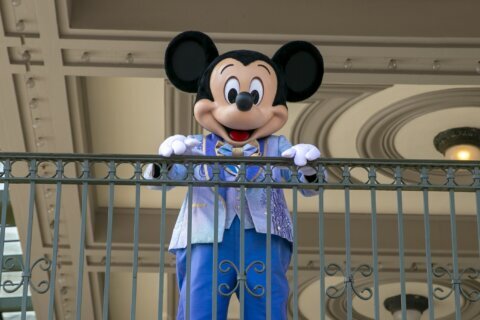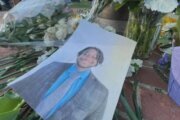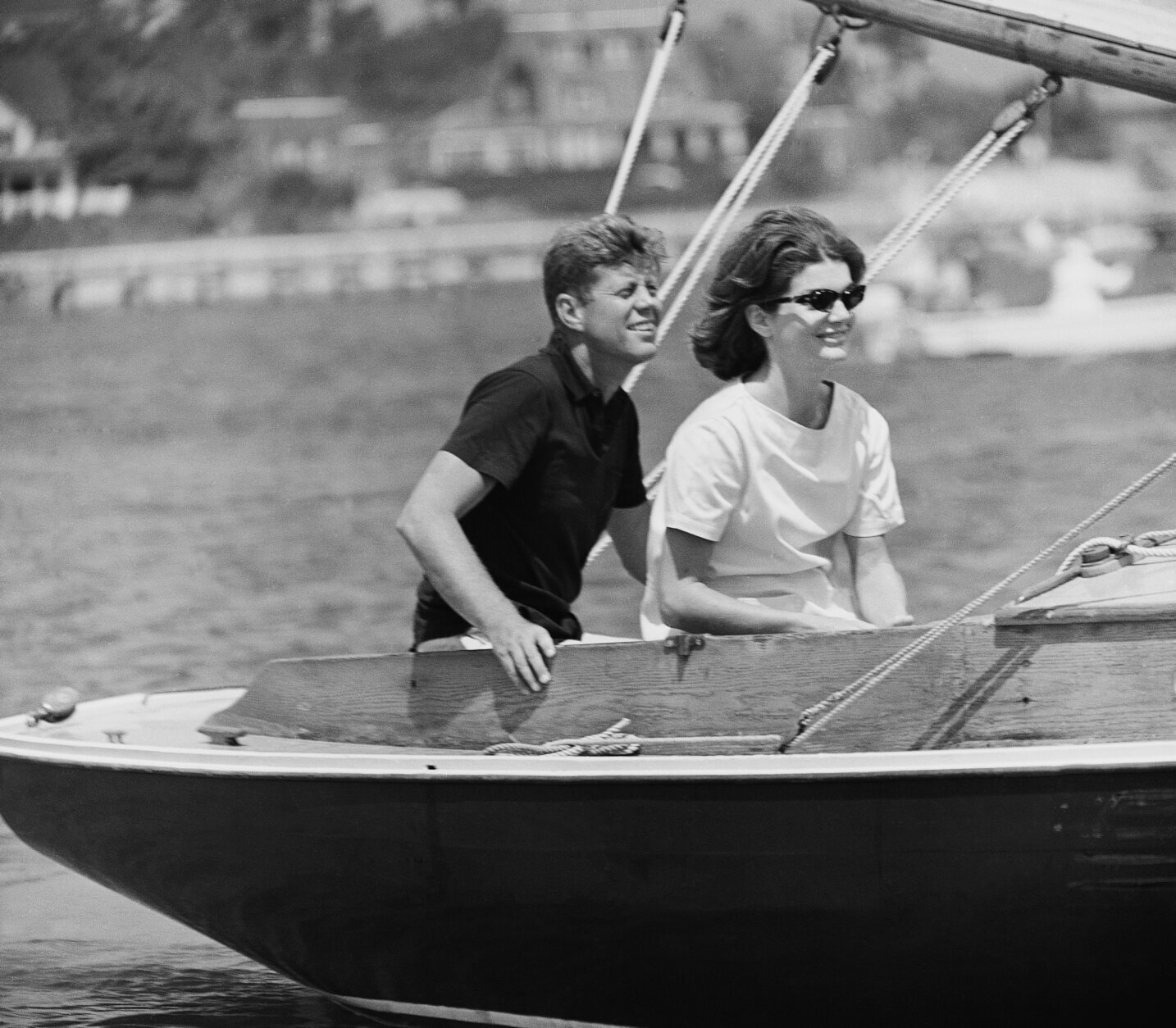
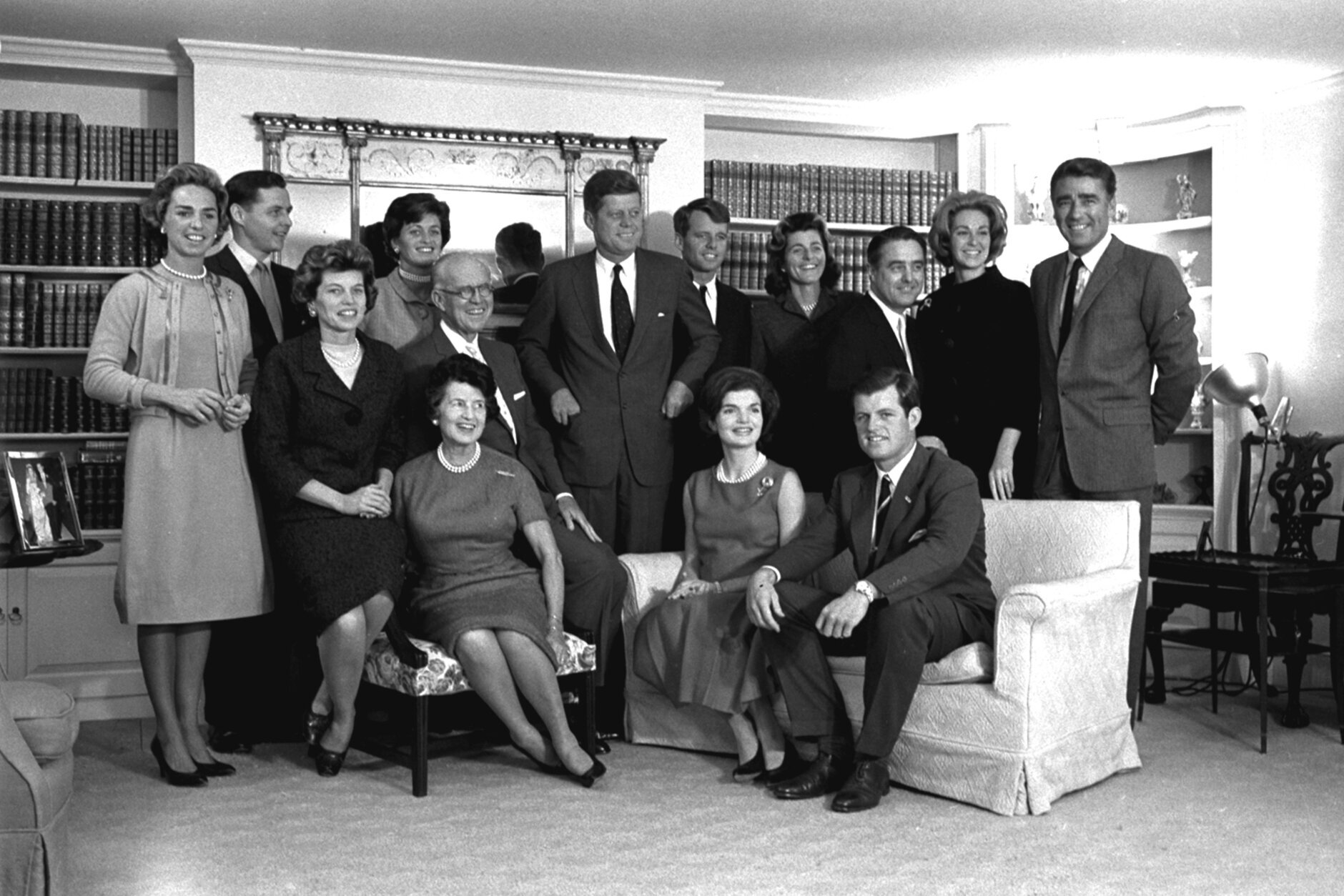
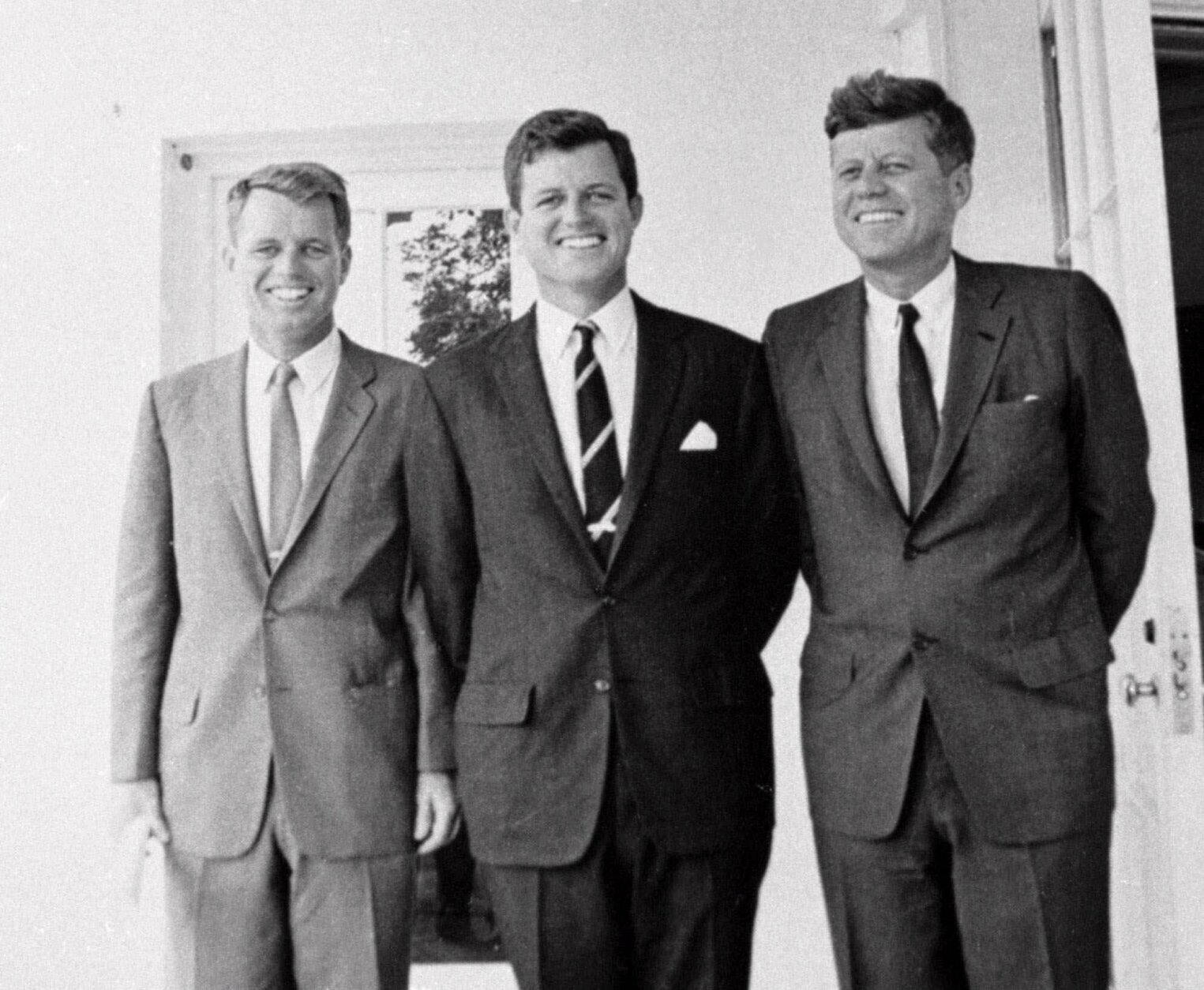
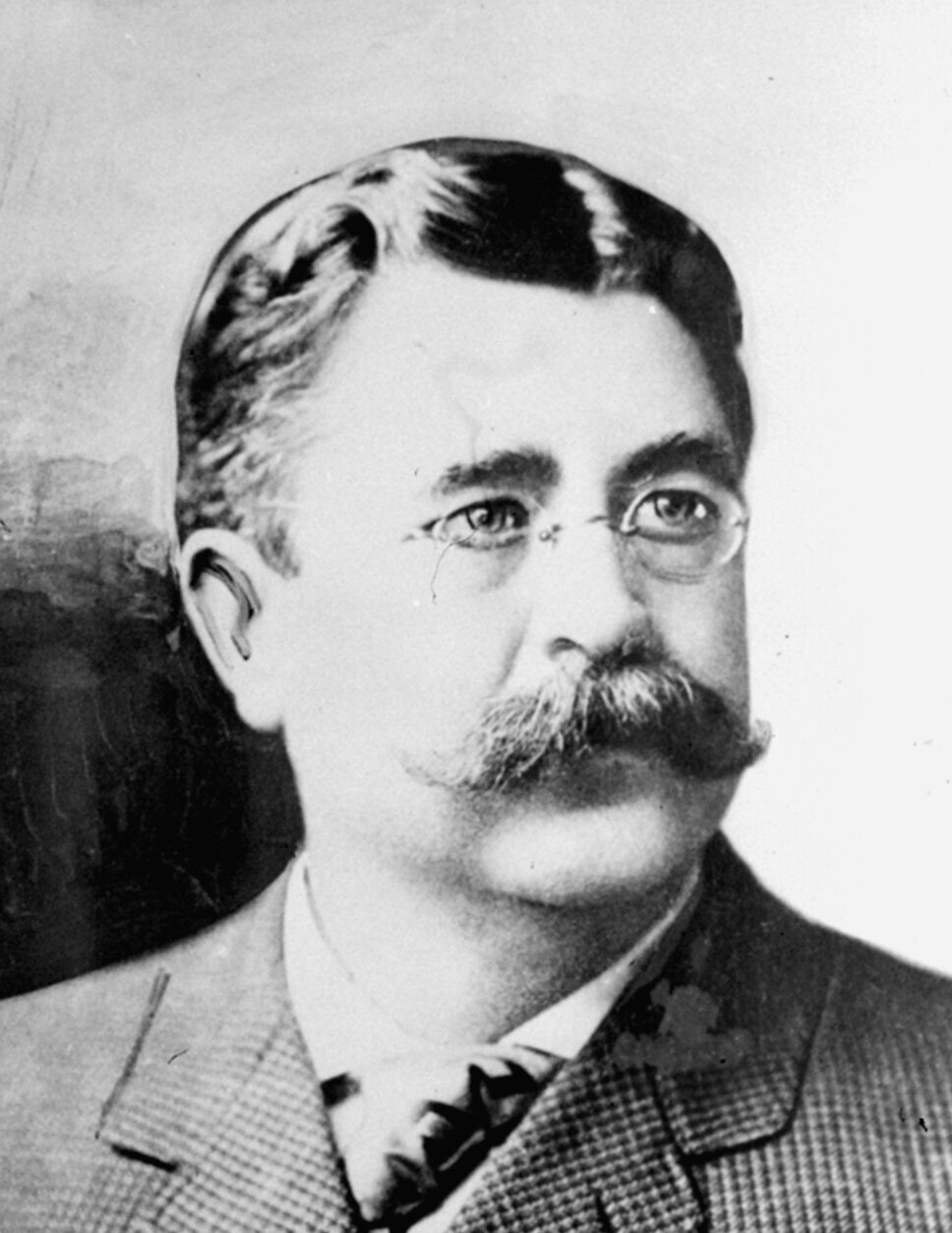
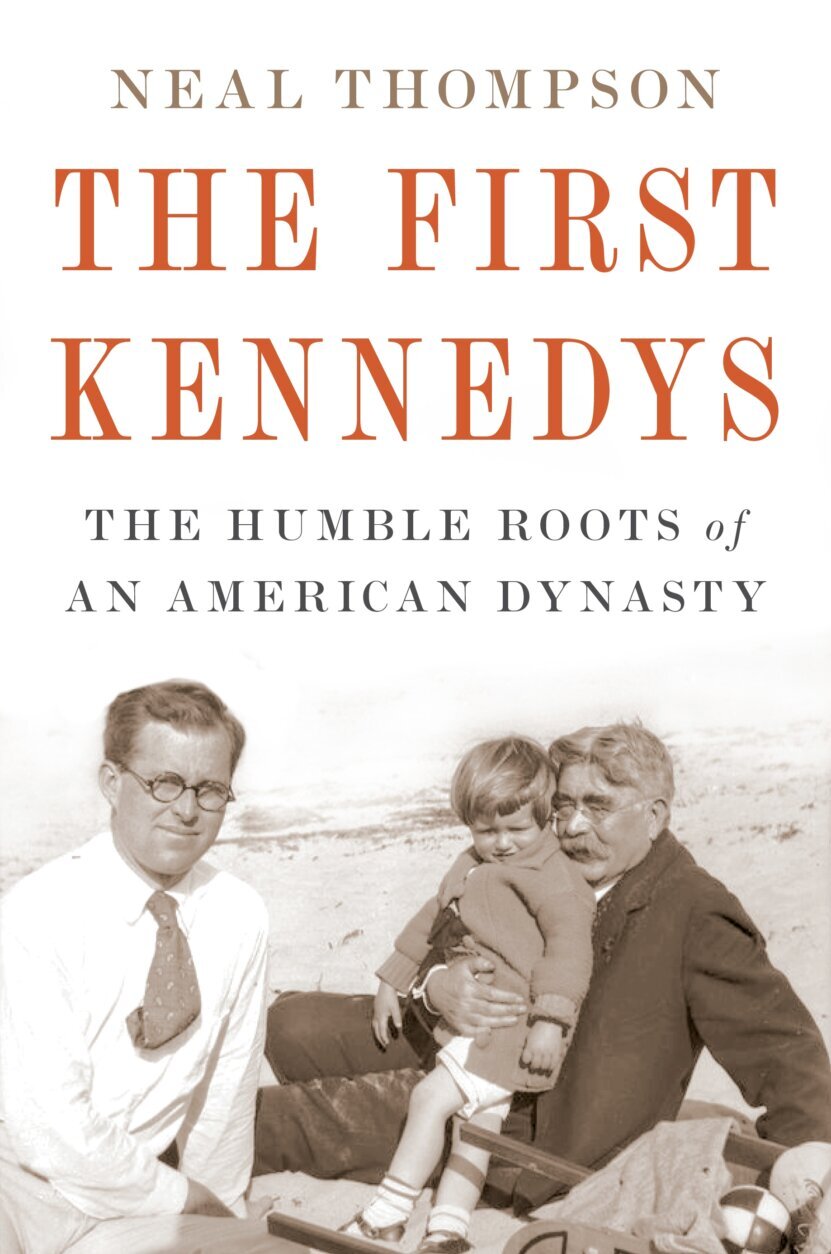
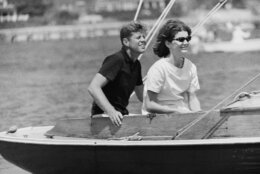
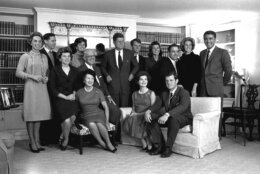
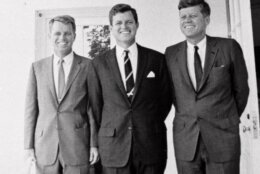
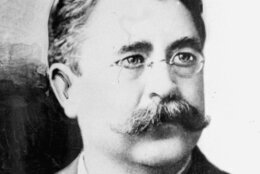
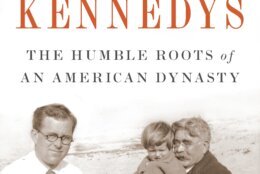
BOSTON (AP) — Think of the Kennedys and some elitist attributes come to mind: wealth, power, influence, elegance.
But the great-grandparents of John F. Kennedy and Robert F. Kennedy possessed none of those things. And the family’s improbable journey from obscurity in Ireland to eventual prosperity and celebrity in the U.S. offers hope to America’s latest arrivals from Afghanistan, Ukraine and beyond.
In “The First Kennedys,” released last month by Harper Collins’ Mariner Books, author Neal Thompson explores the little-known stories of Bridget Murphy Kennedy and Patrick Kennedy. Both independently fled famine in their homeland in the mid-1800s, fell in love in fiercely anti-immigrant Boston, and paved the way for the Kennedy political dynasty that followed.
Just in time for St. Patrick’s Day, The Associated Press caught up with Thompson to discuss this murky chapter in the history of a family that would become known as “Camelot” — and its lessons for today’s newcomers.
___
AP: You open the book with Bridget burying her husband outside the city because “Boston doesn’t want his Irish Catholic body in its soil.” Was anti-Irish sentiment really that bad midway through the 19th century?
Thompson: I was shocked to learn how deeply Boston and other parts of New England despised the incoming Irish and didn’t want them as neighbors. Newspaper articles from the 1800s sometimes expressed sentiments we’ve heard in recent years: ‘Send them back. They’re bringing their disease to America. They’re bringing their crazy religion to America.’ Racism was worse against non-white immigrants, clearly, but some of what they were up against says a lot about who we were then and who we are now as a country, and our relationship with people fleeing other countries and trying to make a new start for themselves here.
AP: What surprised you in telling this story? Were there things about the early Kennedys you hadn’t expected to find?
Thompson: There were some remarkable ‘Holy Cow!’ moments. When Bridget Murphy Kennedy came to America, she was part of this wave of female Irish immigrants at a time when the women leaving Ireland outnumbered the men. That says a lot about the risks these women were willing to take. It says something about the not-very-hopeful life they were leaving behind in Ireland, that they were willing to get on a dangerous ship and cross the ocean and come to a place they’d never been before, and face people who didn’t want them here.
AP: You paint a picture of these women as strong and spirited. Many were working as maids, but they were cheeky and irreverent — not afraid to push back.
Thompson: They fought for themselves. Many of these Irish women fought hard to move their way up into other jobs. Bridget became a hairdresser and later a business owner. Others became teachers or nurses during the Civil War. They helped with the cause of abolition and fought for suffrage.
AP: For the better part of a century, we’ve had this obsession with ‘Camelot.’ Are people still obsessed with the Kennedys?
Thompson: I think the Kennedys as a dynasty are definitely sort of fading, at least in the way that we’ve seen them through much of the 20th century and into the early parts of the 21st century. As a political dynasty, and as a family that represents something larger to a lot of us, I think that’s on the wane.
AP: We’re seeing an extraordinary wave of people leaving Ukraine, and like the Irish migration of the 19th century, it’s a wave of women and children. And Afghan evacuees are seeking refuge in the U.S. How can the Irish experience help us understand immigration today?
Thompson: We are, in many ways, a country that embraces our place as a beacon for other people. If you have sound immigration policies and allow people to come here and make a start for themselves and work their way up, you can get a family like the Kennedys. It makes no sense to prevent others from coming here — and feeding the economic engine — and giving them the opportunity to move up the way the Kennedys did.
AP: Thursday is St. Patrick’s Day. What do you hope Irish Americans and others think about themselves in the context of the early Kennedys’ experience?
Thompson: Essentially, it’s about poor, oppressed refugees coming to America, being offered the opportunity to start a life and achieving their dreams despite everything they were up against. It’s an inspiring story about America — what America can be and what the immigrant experience gives to this country.
Copyright © 2024 The Associated Press. All rights reserved. This material may not be published, broadcast, written or redistributed.



